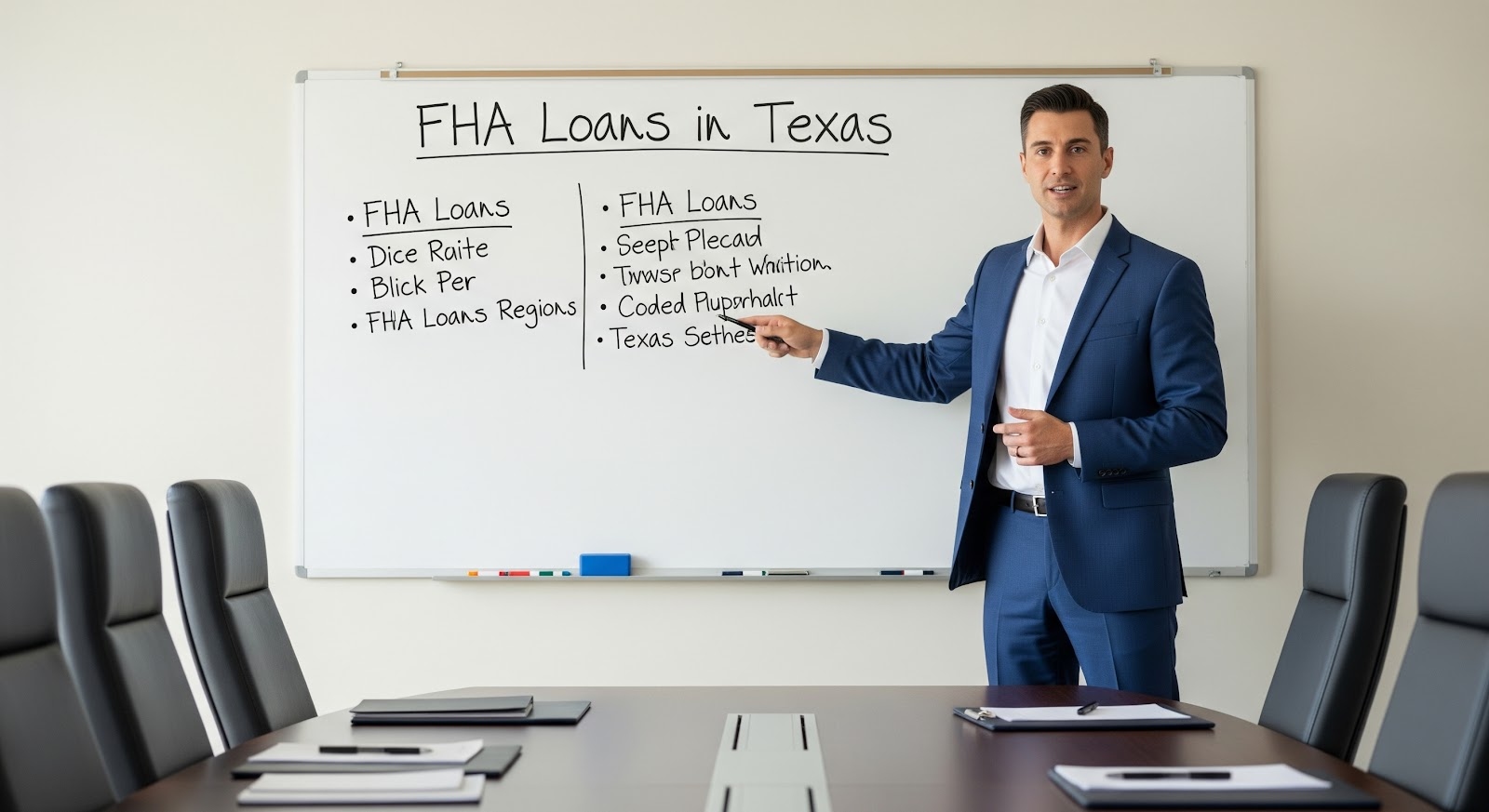Non-QM loans differ from traditional mortgages mainly because they don’t meet the strict guidelines set by the Consumer Financial Protection Bureau for Qualified Mortgages. These loans offer greater flexibility in terms of documentation, income verification, and credit profiles. Instead of relying solely on steady income and rigid debt-to-income ratios, lenders assess broader financial factors, such as asset depletion or future earning potential. This flexibility opens doors for many borrowers who might not qualify under conventional standards, yet the underwriting process tends to be more complex and nuanced.
Defining Non-QM Loans in Today’s Market
Non-QM loans today serve borrowers with irregular incomes, such as self-employed professionals, contractors, or those with significant assets but limited proof of earnings. They often feature adjustable rates, interest-only options, and unique underwriting criteria that don’t conform to traditional debt-to-income limits. In Texas, for example, Non-QM loans offer tailored solutions for entrepreneurs and investors who face stringent conventional qualification requirements, enabling them to secure financing where conventional mortgages may fall short.
The Borrower Pool: Who Benefits Most?
You benefit most from Non-QM loans if you have non-traditional income streams, like freelance work, fluctuating commissions, or gig economy earnings. Borrowers with lower credit scores or those who’ve recently experienced financial setbacks, such as bankruptcy or foreclosure, also find Non-QM loans more accessible. These loans cater to a growing demographic that needs flexible underwriting beyond the constraints of standard mortgage definitions.
Diving deeper, borrowers such as self-employed business owners often present financial documentation that shows profitability rather than fixed monthly income, which traditional loans struggle to evaluate. Texas real estate investors also rely on Non-QM loans due to their ability to finance multiple properties with fewer restrictions. Additionally, expatriates or individuals with significant offshore income can qualify since Non-QM underwriters accept alternative proof of income. This variety in borrower profiles highlights how Non-QM programs respond directly to marketplace gaps left by conventional lending rules.
Key Takeaways:
- Non-QM loans offer greater flexibility in qualifying criteria, making them suitable for borrowers with unconventional income sources or credit situations.
- These loans often come with higher interest rates and fees compared to traditional QM loans, reflecting the increased risk to lenders.
- Non-QM mortgages can be beneficial for self-employed individuals, investors, or those with irregular income but may involve more stringent documentation and underwriting processes.

Weighing the Advantages: Why Non-QM Mortgages Attract Borrowers
Non-QM mortgages offer appealing benefits that attract borrowers who don’t fit the traditional lending criteria. You gain access to financing when income verification, credit history, or asset documentation doesn’t align with conventional standards. These loans can accommodate unique situations, such as self-employment, irregular income streams, or investments, providing you with greater opportunities to secure homeownership without extensive paperwork. Flexibility and customization make Non-QM options especially attractive if your financial profile is complex or evolving.
Flexibility in Income Verification and Documentation
Non-QM loans open doors when your income statements don’t follow standard formats, allowing alternative documentation like bank statements, asset depletion calculations, or even profit-and-loss summaries. This flexibility means you can qualify even if you’re self-employed, have multiple income sources, or experience fluctuating earnings. By focusing less on rigid pay stubs or tax returns, these loans accommodate more personalized and realistic income assessments tailored to your financial narrative.
Diverse Loan Options for Unique Financial Situations
Various Non-QM loan programs cater to different financial scenarios, from jumbo loans that exceed conventional limits to loans designed for real estate investors or retirees living off investment income. You can find tailored solutions that address credit blemishes, short-term financial hurdles, or non-traditional assets, ensuring the mortgage fits your distinct circumstances rather than forcing you to fit into a one-size-fits-all model.
Delving deeper, these loan products cater to scenarios such as high-net-worth individuals with limited W-2 income, borrowers recovering from recent credit events, or those purchasing properties in high-cost Texas markets where loan limits or income patterns make standard loans challenging. Some lenders even offer interest-only options or extended documentation alternatives that consider your entire financial ecosystem, enhancing your purchasing power and loan approval odds, even with complex credit or income profiles.
The Flip Side: Recognizing the Risks and Drawbacks
Non-QM loans can open doors where traditional financing falls short, but you should weigh these benefits against certain risks. Higher interest rates and increased fees often accompany these loans, reflecting the added lending risk. Moreover, the flexible underwriting criteria may expose you to stricter repayment terms and more severe consequences if payments are not made on time. Being aware of these challenges can help you determine if a Non-QM mortgage is a suitable fit for your specific financial situation and long-term goals.
Higher Interest Rates and Associated Costs
Expect Non-QM loans to carry interest rates about 0.5% to 1% higher than conventional mortgages, compensating lenders for the increased underwriting risk. Additionally, origination fees can range from 1% to 3% of the loan amount, and you might encounter higher closing costs. These expenses reduce your monthly savings and overall affordability, so factoring them into your budget is necessary before moving forward.
Potential for Stricter Delinquency and Foreclosure Policies
Lenders offering Non-QM loans often enforce stricter policies if you fall behind on payments. You may face shorter cure periods and less flexible repayment plans, increasing the likelihood of quicker foreclosure proceedings compared to QM loans. This heightened enforcement reflects the lender’s need to mitigate its elevated risk exposure.
These policies mean the margin for error becomes significantly tighter, especially in volatile markets like Texas. For example, some lenders require delinquent borrowers to respond within 15 days, whereas QM loans often allow 30 days or more. Foreclosure timelines can accelerate from an average of 180 days to as few as 90 days, leaving you with less time to resolve financial setbacks. Understanding these stricter protocols helps you prepare for potential challenges if your financial situation changes after obtaining a Non-QM mortgage.
The Texas Perspective: Navigating Non-QM Loans in the Lone Star State
Texas’ real estate market, renowned for its rapid growth and diverse buyer base, presents unique opportunities and challenges for Non-QM loans. You can leverage higher loan limits compared to many states, which allows for substantial financing on luxury and investment properties. However, the state’s strict lending laws and regulatory nuances require you to work with lenders familiar with Texas-specific underwriting standards. Understanding these elements is key to navigating Non-QM mortgages effectively within the Lone Star State’s dynamic property landscape.
Local Regulations and Market Trends
Texas enforces a blend of consumer protection laws alongside federal standards that influence Non-QM offerings. You’ll notice lenders in Texas often factor in fluctuating home values in cities like Austin and Dallas, where prices have surged over 20% in recent years. These market trends encourage more flexible income documentation and asset-based products, making Non-QM loans a practical solution for freelancers and investors whose finances don’t fit conventional molds.
Case Examples: Success Stories and Cautionary Tales
Several Texas borrowers have successfully utilized Non-QM loans to secure homes, particularly entrepreneurs with non-traditional income streams. One buyer in Houston closed on a $650,000 home using bank statement income verification, thereby bypassing the need for traditional tax returns. Conversely, a Dallas investor faced foreclosure after stretching too far with high-interest Non-QM loans on multiple rental properties during a market cooldown, illustrating the risks of over-leverage and interest rate volatility.
Digging deeper into these cases reveals a pattern: successful Non-QM borrowers in Texas often combine conservative loan-to-value ratios with detailed income transparency, thereby reducing risk for both parties. Meanwhile, trouble arises when borrowers opt for high leverage without adequate cash reserves, highlighting that while Non-QM loans increase accessibility, they demand careful financial planning and realistic repayment strategies tailored to Texas’ volatile market conditions.
Making an Informed Decision: Key Considerations Before Committing
Evaluating a Non-QM mortgage involves looking beyond loan features to how it aligns with your unique financial landscape. Consider your income structure, credit profile, and long-term plans since Non-QM loans often serve borrowers with irregular income streams or unconventional employment. Weigh interest rates and potential fees against flexibility needs, especially in Texas, where specific lending regulations may affect availability and terms. A clear grasp of how Non-QM options fit your situation helps avoid surprises down the line.
Assessing Personal Financial Health and Goals
Review your income consistency, debt obligations, and credit health, paying particular attention to how Non-QM criteria differ from those of conventional loans. Your goal could be stabilizing cash flow or purchasing investment properties, both of which Non-QM loans can accommodate better. Analyze how monthly payments fit your budget and what impact variable rates or interest-only options might have over time, particularly in Texas markets where housing costs and lending rules create unique challenges.
Consulting Professionals for Tailored Advice
Engaging with mortgage brokers or financial advisors experienced in Non-QM loans can provide valuable insights tailored to your specific circumstances. They can navigate complex documentation, such as bank statements or asset depletion loans, and explain how Texas’ lending environment influences your choices. Professional advice can also identify lenders familiar with Non-QM products and negotiate terms that reflect your risk profile, improving your chances for approval at competitive rates.
Mortgage professionals bring a nuanced understanding of Non-QM loan variations and local market conditions. For example, Texas has strict lending cap laws and unique non-recourse loan provisions that affect borrower protections. Advisors with this expertise can assess whether your self-employed income qualifies under Non-QM parameters or suggest loan structures minimizing upfront costs. They often access exclusive lender networks, securing financing solutions tailored to your credit nuances and investment strategy.
FAQ
Q: What are the main advantages of choosing a Non-QM loan?
A: Non-QM loans offer greater flexibility compared to traditional qualified mortgages. They are ideal for borrowers with unique financial situations, such as self-employed individuals or those with irregular income streams, since they often allow alternative documentation for income verification. This flexibility can make it easier to qualify for a loan when traditional criteria cannot be met.
Q: What potential drawbacks should borrowers consider with Non-QM loans?
A: Non-QM loans typically come with higher interest rates and larger down payment requirements compared to conventional mortgages. Additionally, these loans might involve stricter underwriting guidelines and fewer borrower protections. This can result in higher overall borrowing costs and increased risk if borrowers are not prepared for the terms.
Q: How do Non-QM loans impact the loan approval process?
A: The approval process for Non-QM loans can be more complex and time-consuming because lenders need to evaluate alternative documentation and assess risks differently. While this can be beneficial for those who don’t fit traditional profiles, it may result in longer processing times and increased scrutiny during underwriting.





